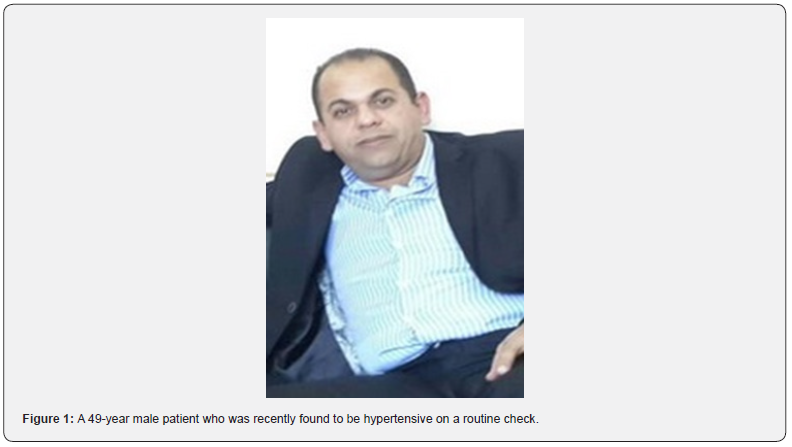The Use of Coenzyme Q10 in Hypertension: An Educational Article and Expert Opinion
Aamir Al Mosawi*
Advisor doctor and expert trainer, The National Center of Training and Development Iraqi Ministry of Health, Baghdad, Iraq
Submission: May 9, 2023; Published: May 18, 2023
*Corresponding author: Aamir Al Mosawi, Advisor doctor and expert trainer, The National Center of Training and Development Iraqi Ministry of Health, Baghdad, Iraq
How to cite this article:Aamir Al M. The use of L-arginine in Hypertension: An Educational Article and Expert Opinion. JOJ Pub Health. 2023; 7(4): 555716. DOI: 10.19080/JOJPH.2023.07.555716
Abstract
Introduction: Impairment of endothelium-dependent vasodilation has been increasingly recognized as an important contributor for the development of essential hypertension’s-arginine is an amino acid that is considered the biological precursor of nitric oxide which is an important contributor to microvascular vasodilation and to the reduction atherosclerosis. L-arginine has been recognized as safe (GRAS-status) when taken in an oral dose of up to 20 g daily.
Patients and methods: A 49-year male patient was recently found to be hypertensive on a routine check, and was advised to take an antihypertensive medication, but he requested treatment with health supplement initially to avoid the development of impotence attributed to antihypertensive medications.
Results: The patient was recently found to be hypertensive on a routine check (Blood pressure: 160/110 mmHg), and was advised to take an antihypertensive medication, but he requested treatment with health supplement initially to avoid the development of impotence attributed to antihypertensive medications. The patient was treated with a unique approach under close supervision to avoid the development of hypertensive complication. He received oral l-arginine 3g daily before breakfast taken with lemon juice for its antioxidant vitamin C content. Within less than one week, his blood pressure normalized (Blood pressure: 135/85 mmHg).
Conclusion: Oral L-arginine has been emerging as a new effective approach of reducing blood through improving endothelial function in hypertensive patients. This paper reports the successful treatment of hypertension with L-arginine.
Keywords: Oral L-Arginine; New Hypertension Treatment; Expert Opinion
Introduction
Impairment of endothelium-dependent vasodilation has been increasingly recognized as an important contributor for the development of essential hypertension’s-arginine is an amino acid that is considered the biological precursor of nitric oxide which is an important contributor to microvascular vasodilation and to the reduction atherosclerosis. L-arginine has been recognized as safe (GRAS-status) when taken in an oral dose of up to 20 g daily [1-3].
Patients and Methods
A 49-year male patient (Figure 1) was recently found to be hypertensive on a routine check, and was advised to take an antihypertensive medication, but he requested treatment with health supplement initially to avoid the development of impotence attributed to antihypertensive medications. The patient was known to have mild hyperlipidemia with increased blood cholesterol and triglycerides for more than one year and he was trying to lower lipid by dietary maneuver and exercises as he was reluctant to a lipid lowering statin medication prescribed to him by a physician because he was worried of possible risk of muscle damage. However, because of failure of non-drug management to make significant lowering of blood lipids and because the patient had family history of hyperlipidemia associated with ischemic heart disease and his older brother was known to have ischemic cardiomyopathy, we prescribed omega-3 plus garlic supplement to help in lipid lowering.
Results
The patient was recently found to be hypertensive on a routine check (Blood pressure: 160/110 mmHg), and was advised to take an antihypertensive medication, but he requested treatment with health supplement initially to avoid the development of impotence attributed to antihypertensive medications. Before about one month from this episode of hypertension, the patient’s cardiovascular fitness was assessed according to the recommendations of Al-Mosawi (2023), and he was able to perform 30 squats in one minute, and also able to perform 20 push-ups in one minute suggesting he was no having significant cardiovascular risk. Therefore, the patient was treated with a unique approach under close supervision to avoid the development of hypertensive complication. He received oral l-arginine 3g daily before breakfast taken with lemon juice for its antioxidant vitamin C content. Within less than one week, his blood pressure normalized (Blood pressure: 135/85 mmHg).

Discussion



In 1993, William G Haynes (Figure 2) and his research team from the University of Edinburgh reported a placebo controlled clinical study which showed that inhibition of nitric oxide production with NG-monomethyl-L-arginine (L-NMMA), a nitric oxide synthase inhibitor is associated with an increased total peripheral resistance and blood pressure in healthy individuals. Therefore, Haynes his research team suggested that reduction in nitric oxide production could be an important contributor to the elevation of blood pressure in essential hypertension [4,5]. In 1993, Dell’Omo et al from Italy reported a clinical study which showed that intravenous infusion of L-arginine in patients with hypertension is associated with reduction in the systolic blood pressure by 16.6% and reduction in the diastolic by 11%. The hypotensive effect was not associated with significant effect on heart rate, plasma rennin, and plasma norepinephrine [6]. Our patient received oral l-arginine 3g daily before breakfast taken with lemon juice for its antioxidant vitamin C content. In 1998, Stefano Taddei (Figure 3) from Italy and his research team reported a clinical study which showed that the antioxidant vitamin C can help in improving the impaired endothelial vasodilation which occur essential hypertensive patients [7].
In 2000, Alfonso Siani (Figure 4) from the Institute of Food Sciences and Technology, National Research Council in Italy and his research team emphasized that L-arginine supplementation can possibly reverse endothelial dysfunction associated with hypertension and hypercholesterolemia. They reported a clinical study which showed that L-arginine can considerably lower blood pressure in healthy individuals [8]. In 2002, Nhan T Huynh, John A Tayek from the United States emphasized that L-arginine is converted to nitric oxide (a potent vasodilator) and citrulline in the endothelial cells. They reported a clinical study which showed that l-arginine can help in increasing the reduced endothelial nitric oxide synthase and thus can decrease blood pressure in type 2 diabetic patients with mild hypertension [9].
In 2004, Altin Palloshi from Italy and his research group reported the treatment of 13 patients with hypertension associated with microvascular angina with 6 g of oral L-arginine in three divided doses for one month. (4 weeks, 2 g, 3 times daily). Treatment was associated with improvement of improved anginal symptoms and systolic blood pressure [10]. In 2007, Fabio Facchinetti from Italy and his research group reported a controlled study which suggested the oral L-arginine supplementation can be used in the treatment of gestational hypertension [11]. Ast et al (2010) from Poland reported a placebo controlled study was which included 54 individuals including 19 healthy individuals (Control) and 35 patients with hypertension. The patients received either L-arginine (2 or 4 g three times daily) or received placebo. One month L-arginine supplementation in a dose of 12 g daily was associated with considerable lowering of systolic and diastolic blood pressure [12].
Conclusion
Oral L-arginine has been emerging as a new effective approach of reducing blood through improving endothelial function in hypertensive patients. This paper reports the successful treatment of hypertension with L-arginine.
Acknowledgment
i. The patient kindly accepted publishing his photo to enhance the documentation of the paper.
ii. The author has the copyright of all the sketches in this paper.
Conflict of interest
None.
References
- Al Mosawi AJ (2012) L-arginine research progress 1st Saarbrücken. LAP Lambert Academic Publishing, London UK.
- Al Mosawi AJ (2012) Sport supplement: The available evidence. 1st Saarbrücken. LAP Lambert Academic Publishing, London UK.
- Al Mosawi AJ (2020) Advanced medical leadership course: A practical textbook for trainers. Scholar’s press, Republic of Moldova.
- Al Mosawi AJ (2023) The preventive and predictive value of simple exercises (Stair-climbing, squat, and push-up): An educational article and expert opinion. Journal of Obesity and Fitness Management 1(1): 1-5.
- Haynes WG, Noon JP, Walker BR and Webb DJ (1993) Inhibition of nitric oxide synthesis increases blood pressure in healthy humans. J Hypertens 11(12): 1375-1380.
- Dell Omo G, Catapano G, Ebel M, Gazzano A, Ducci M, et al. (1995) Pressor, renal and endocrine effects of systemic infusion of L-arginine in hypertensive patients. Ann Ital Med Int 10(2): 107-112.
- Taddei S, Virdis A, Ghiadoni L, Magagna A, Salvetti A (1998) Vitamin C improves endothelium-dependent vasodilation by restoring nitric oxide activity in essential hypertension. Circulation 97(22): 2222-2229.
- Siani A, Pagano E, Iacone R, Iacoviello L, Scopacasa F, et al. (2000) Blood pressure and metabolic changes during dietary L-arginine supplementation in humans. Am J Hypertens 13: 547-551.
- Huynh NT, Tayek JA (2002) Oral arginine reduces systemic blood pressure in type 2 diabetes: its potential role in nitric oxide generation. J Am Coll Nutr 21(5): 422-427.
- Palloshi A, Fragasso G, Piatti P, Monti LD, Setola E, et al. (2004) Effect of oral L-arginine on blood pressure and symptoms and endothelial function in patients with systemic hypertension, positive exercise tests, and normal coronary arteries. Am J Cardiol 93(7): 933-935.
- Facchinetti F, Saade GR, Neri I, Pizzi C and Longo M (2007) L-arginine supplementation in patients with gestational hypertension: a pilot study. Hypertens Pregnancy 26(1): 121-130.
- Ast J, Jablecka A, Bogdanski P, Smolarek I and Krauss H (2010) Evaluation of the antihypertensive effect of L-arginine supplementation in patients with mild hypertension assessed with ambulatory blood pressure monitoring. Med Sci Monit 16(5).






























